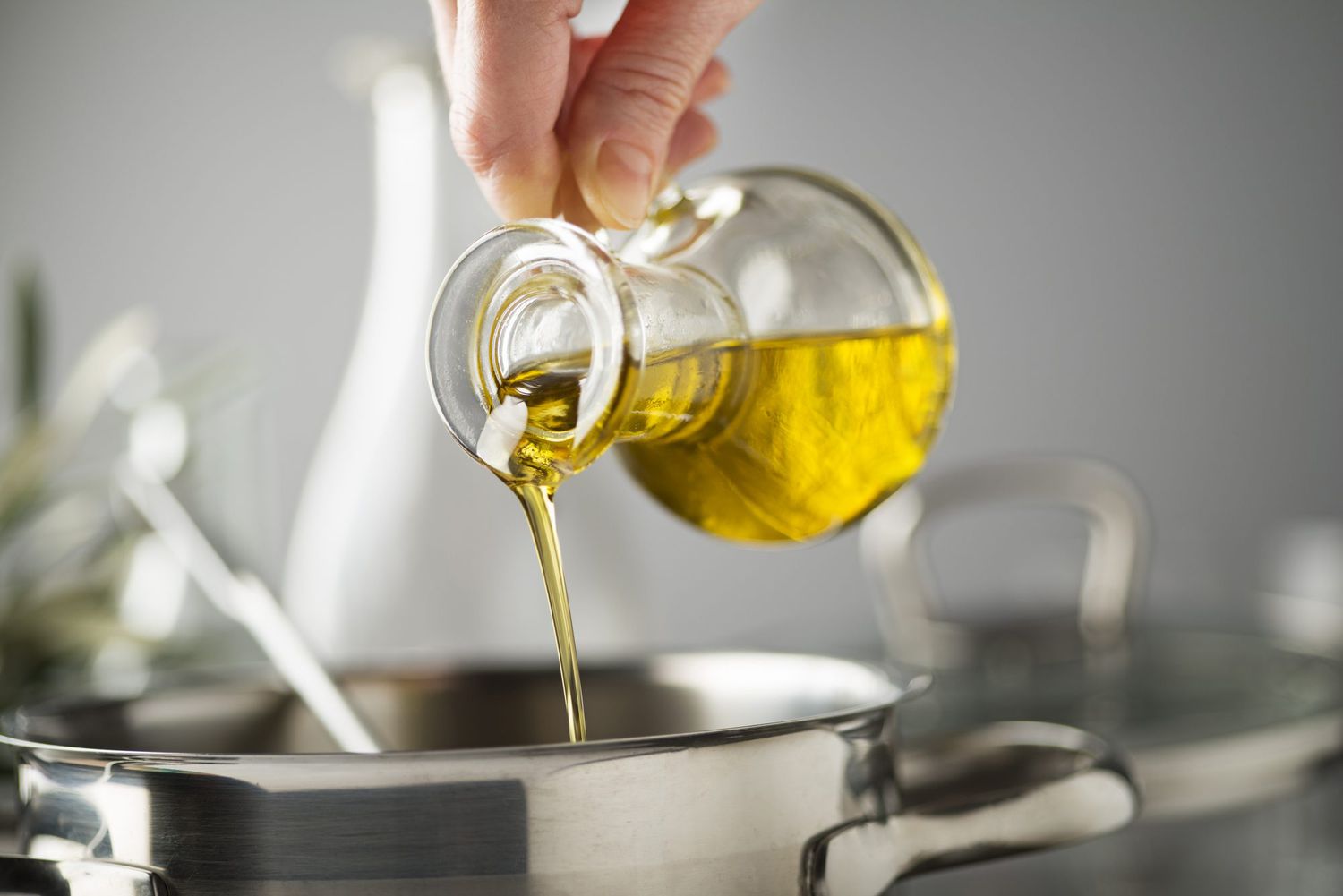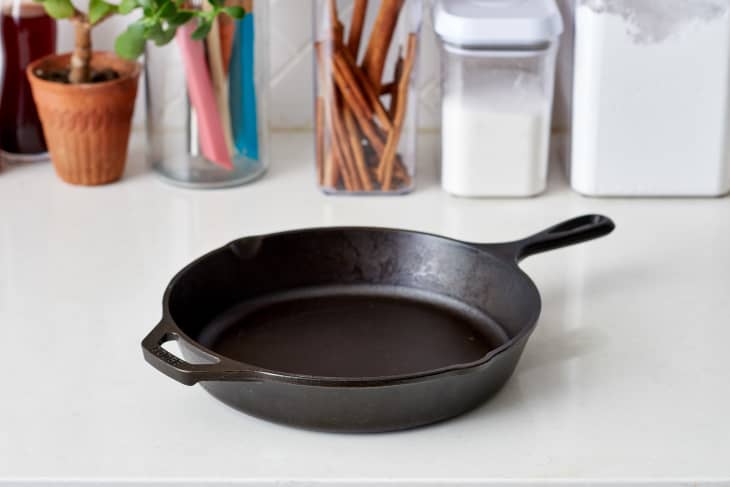Have you ever wondered if your kitchen trash can needs more than just a quick rinse? A dirty kitchen trash can is not only unsightly but also creates a breeding ground for germs and bacteria. For a kitchen that is truly clean and hygienic, understanding how to clean kitchen trash can is essential. In this guide, we'll take you through a step-by-step approach to transform your trash can, making it fresh, clean, and odor-free.

Why Cleaning Your Kitchen Trash Can is Important
A clean kitchen trash can is a cornerstone of a hygienic household. Neglecting it can lead to lingering odors, pest infestations, and the spread of bacteria. By thoroughly cleaning your trash can, you're ensuring a healthier environment for you and your family. Let's delve deeper into why maintaining your trash can should be part of your regular cleaning routine.
Eliminates Unpleasant Odors
An obvious reason to keep your trash can clean is to prevent and eliminate bad smells. Food scraps, liquids, and other waste products can leave behind residue that eventually starts to rot, causing unpleasant odors to permeate your kitchen. Regular cleaning prevents the buildup of these odor-causing residues.
Prevents Pest Infestations
Bugs and rodents are attracted to leftover food particles and waste. Cleaning your kitchen trash can removes these attractants, making it less likely that pests will invade your home. Regular sanitizing also helps to keep insects and rodents at bay.
Reduces Bacteria and Germ Spread
Trash cans can harbor harmful bacteria and germs, which can easily spread to other areas of your kitchen. By cleaning and disinfecting your trash can regularly, you're minimizing the risk of cross-contamination and maintaining a healthier space for meal preparation. For additional tips on maintaining kitchen hygiene, visit our guide on kitchen cleaning tips.

How Often Should You Clean Your Kitchen Trash Can?
You might wonder how often you need to clean your kitchen trash can. As a general rule, aim to wipe down the interior and exterior of the trash can every time you change the bag. A more thorough cleaning is recommended at least once a month, or more frequently if you notice persistent odors or residue. Learn more about scheduled cleaning tips.

Step-by-Step Guide on How to Clean Your Kitchen Trash Can
Gather Your Supplies
Before you start cleaning, gather the necessary supplies. This will make the process smoother and more efficient. Here's what you'll need:
- Rubber gloves
- Scrub brush or sponge
- Dish soap
- Disinfectant spray or wipes
- Baking soda
- Paper towels or a clean cloth
- Trash bags
- Water hose (optional for outdoor cleaning)
Empty the Trash Can
Start by removing the trash bag and disposing of it properly. If there's any loose debris, dump it out into a new trash bag. This will make your cleaning process easier and more effective.
Wash the Interior and Exterior
Put on your rubber gloves and take your trash can outside if possible. Use a hose to rinse off any stuck-on debris from both the inside and outside of the can. If you can't take it outside, use your bathtub or shower as an alternative cleaning space. For tough cleaning jobs, refer to our deep cleaning guide.
Scrub with Soap and Water
Fill the trash can with warm water and add a few drops of dish soap. Use your scrub brush or sponge to scrub the interior and exterior surfaces. Pay special attention to any corners or crevices where grime might accumulate.
Rinse and Dry
Once you're satisfied with the level of cleanliness, pour out the soapy water and rinse the can thoroughly with clean water. Use paper towels or a clean cloth to dry the trash can. Make sure it's completely dry before moving on to the next step.
Disinfect
To ensure your trash can is germ-free, use a disinfectant spray or wipes to sanitize both the interior and exterior. Follow the instructions on the disinfectant product for proper use. Pay extra attention to the lid and edges, as these areas often come into contact with food particles and waste.
Deodorize with Baking Soda
Sprinkle a thin layer of baking soda at the bottom of the trash can to absorb any remaining odors. Baking soda is a natural deodorizer and helps keep your trash can smelling fresh between cleanings. For more on natural cleaning solutions, check out this article on the best ways to clean a commercial kitchen.

Pro Tips to Maintain a Clean Kitchen Trash Can
Use Trash Bags with Odor Control
Consider using trash bags that come with built-in odor control features. These bags are designed to help neutralize smells and keep your trash can fresher for longer periods.
Add a Liner
Using a liner at the bottom of your trash can can catch any spills or leaks from the trash bag. This additional layer of protection makes cleaning easier and prevents stubborn stains from forming.
Routinely Check for Leaks and Residue
Make it a habit to inspect your trash can each time you change the bag. Look for leaks, residue, or buildup and address these issues immediately to keep your trash can in top condition.
FAQs on How to Clean Kitchen Trash Can
How often should I clean my kitchen trash can?
Wipe down your kitchen trash can every time you change the bag and deep clean it at least once a month.
Can I use bleach to clean my kitchen trash can?
Yes, you can use a diluted bleach solution to disinfect your trash can. However, be sure to rinse thoroughly and allow it to dry completely before using it again.
What can I use if I don't have disinfectant wipes?
If you don't have disinfectant wipes, a mixture of water and white vinegar can act as a natural disinfectant. Simply spray the solution on the surfaces and wipe it down with a clean cloth.
As an Amazon Associate, I earn from qualifying purchases.
For more detailed cleaning tips, visit Good Housekeeping.






Leave a comment
This site is protected by hCaptcha and the hCaptcha Privacy Policy and Terms of Service apply.